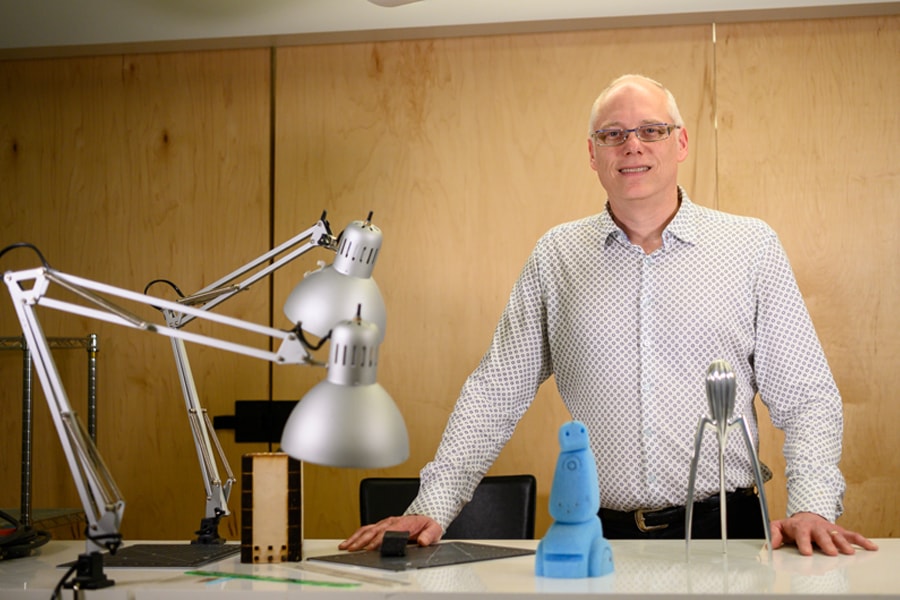RoadBotics Maps a Route to SXSW
In Pittsburgh, it all comes back to potholes.
Every year as winter winds down, commuters dread the bone-crunching thump of squarely nailing a gaping hole in the road on an early-morning drive. Worse still, sitting in a line of cars, late for work because a road crew is patching up what Christoph Mertz, a principal project scientist at Carnegie Mellon University's Robotics Institute, sees as a preventable problem.
Roadbotics started as a small grant and a question in Mertz's mind. Could artificial intelligence detect potholes and cracks in the road from a smartphone camera's images? The answer, it turns out, is revolutionizing the way municipal governments maintain their road infrastructure.
RoadBotics is revolutionizing the way municipal governments maintain their road infrastructure.
"RoadBotics is an example of a national trend," Mertz said. "We're using machine learning and computer vision to replace tough work that no one wants to do."
The start-up company, co-founded by Mertz as chief scientist, CMU adjunct faculty member Mark DeSantis as CEO, and Benjamin Schmidt as chief technology officer, offers a solution to drawn-out road surveys.
Because they are a burdensome undertaking, those surveys have traditionally occurred every few years. Governments use staff or interns to drive the entirety of a road system, stopping along the way to take notes on problem areas (potholes, cracks, etc.). They then return and spend weeks compiling that data.
"If you have a 100-mile network that takes you two months to assess, RoadBotics can do it in two days," Schmidt said.
RoadBotics drivers affix a smartphone camera to the dash, turn on a turn-by-turn GPS system, and simply have to drive. The smartphone captures images of the road, which are analyzed by RoadBotics' AI. The final product is a color-coded map that shows that severity of a road's distress.
RoadBotics' work doesn't eliminate the need to have qualified road engineers evaluating the actual roads. It points them to the problematic areas so they can get to work faster.
"Because we can do road assessment so cheaply and quickly, governments can now do it annually." Schmidt said. "One dollar of preventative maintenance is probably worth 10 on the back end. You don't actually want to see a pothole, ever. Once you see one, the road is already destroyed. We can notice cracks developing sooner than anticipated, seal them, adding years of life to our roads."
The idea has taken off, and RoadBotics currently contracts with nearly 100 governments across the United States. They also have expanded into Australia and India.
RoadBotics' next big hurdle is figuring out how to spread their message as broadly as possible. It is one of 50 startup finalists competing in the 2019 SXSW Pitch Competition.
"I was really pushed at CMU to think about how computer algorithms could be useful for the real world," Mertz said. "For me personally, being part of SXSW really validates the research I've been doing."



